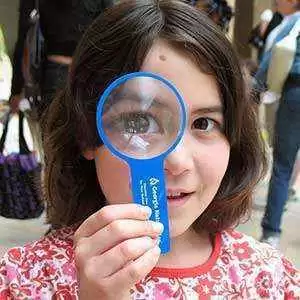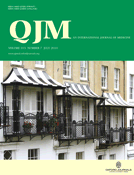Celiac.com 02/13/2014 - A team of researchers recently set out to assess the validity and effectiveness of near-patient celiac immunological testing in dietician-led celiac disease follow-up clinics, and to compare the results against standard laboratory immunological techniques.
 The research team included D.A. George, L.L. Hui, D. Rattehalli, T. Lovatt, I. Perry, M. Green, K. Robinson, J.R.F. Walters, and M.J. Brookes. They are variously affiliated with the Department of Gastroenterology at New Cross Hospital in Wolverhampton, and the Department of Gastroenterology at Imperial College London, in London, UK.
The research team included D.A. George, L.L. Hui, D. Rattehalli, T. Lovatt, I. Perry, M. Green, K. Robinson, J.R.F. Walters, and M.J. Brookes. They are variously affiliated with the Department of Gastroenterology at New Cross Hospital in Wolverhampton, and the Department of Gastroenterology at Imperial College London, in London, UK.
Celiac.com Sponsor (A12):
Each of the two phases of the study assessed the near-patient test and standard laboratory immunological techniques. In Phase 1, the team analyzed stored serum samples, while in Phase 2 they analyzed whole blood from patients attending the dietician-led celiac disease clinics. Between March 2010 and February 2011, the team recruited 50 patients from New Cross Hospital, Wolverhampton, and 30 from Imperial College London.
All patients had a diagnosis of celiac disease for greater than 12 months, and attended dietician-led celiac disease clinics. During the study, the team took whole blood samples for routine analysis, along with regular capillary finger-prick blood samples. The team wanted to determine if the whole blood and serum near-patient test results correlated with outcomes of standard laboratory evaluation.
The first phase of the study showed that the near-patient serum test had a sensitivity of 93.5% (95% CI 0.79% to 0.98%), and a specificity of 94.9% (0.83% to 0.99%), when compared with the standard laboratory ELISA.
The second phase showed that whole blood measurements had a sensitivity of 77.8% (0.45% to 0.93%), and specificity of 100% (0.94% to 1%).
The team concludes that the study results suggest a possible role for near-patient testing in celiac disease, but they suggest additional studies to corroborate and refine such a role.
Disclosure: The team noted the receipt of a £2250 (approximately $3,750.00) bursary award from Dr. Falk Pharma and Core.
Source:
- Open Original Shared Link










Recommended Comments